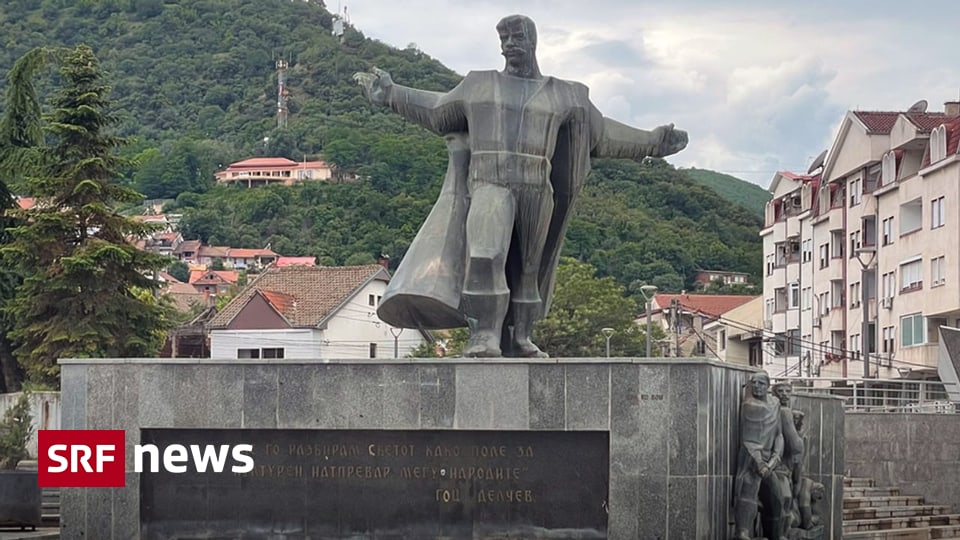
Donko Stojkov raises two pigs in his garden. He also grows vegetables. Cucumbers are already ripe, tomatoes need a little more time. The 70-year-old lives in a small village near the border with Bulgaria.
Donko Stojkov says he is alone here now. His wife is currently visiting their son and grandchildren in Switzerland. They go three months at a time. As long as the Schengen visa allows. The son has lived in French-speaking Switzerland for a long time.
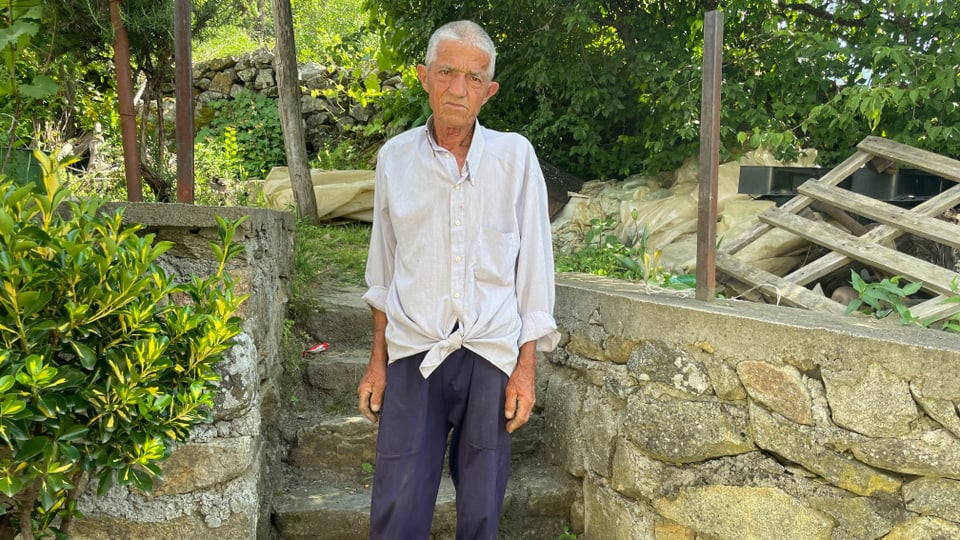
Purana:
There are no young people in Donko Stojko’s village. Most of them emigrated – thanks to Bulgarian passports.
SRF / Janis Fahrländer
The son got a Bulgarian passport to work in the Schengen area. Sometimes it was too easy; After a six-month wait, he became a Bulgarian citizen after paying 300 euros at the right place. At the time, Donko Stojko’s son did not expect that he would eventually become part of a dispute between North Macedonia and Bulgaria.
Bulgaria calls for constitutional change
Bulgaria represents more than 100,000 Macedonians who, like Donko’s son, have obtained Bulgarian passports in the past 20 years. Demand: Recognition of the Bulgarian minority in the constitution of North Macedonia. Otherwise, EU accession talks will be blocked again.
However, in the last census in North Macedonia, just over 3,000 citizens identified themselves as Bulgarian.
A ticket to the European Union
Like Donko Stojko’s son, many in the village traveled abroad using Bulgarian passports. “They went to Italy, Switzerland or Germany,” says Donko Stojkov. “Now you see only people of my generation in the village.” His neighbor agrees with him. The school currently has only five children.
Blagica Stojkova’s son has also been living in Switzerland for many years. Soon after Bulgaria joined the European Union in 2007, he applied for a passport and then immigrated immediately.
Bulgaria claims that North Macedonia is actually part of Bulgaria.
It’s about traveling to Europe with the help of a passport, says a retirement-age woman. She is Macedonian and her son’s passport doesn’t change that. Donko Stojkov did not attempt to obtain a Bulgarian passport. He doesn’t need it, says the pensioner at the garden table.
Demand for Bulgarian passports is decreasing
Journalist Van Trajkov says he has never met anyone who applied for a Bulgarian passport for identity reasons. He has worked in regional and national media in the small town of Strumica for 25 years and has seen the exodus first hand. He estimates that a quarter of all people living in the region now have citizenship in a neighboring country.
The Bulgarian border is about 30 kilometers away. The registered address for the passport is quickly found for a small fee.
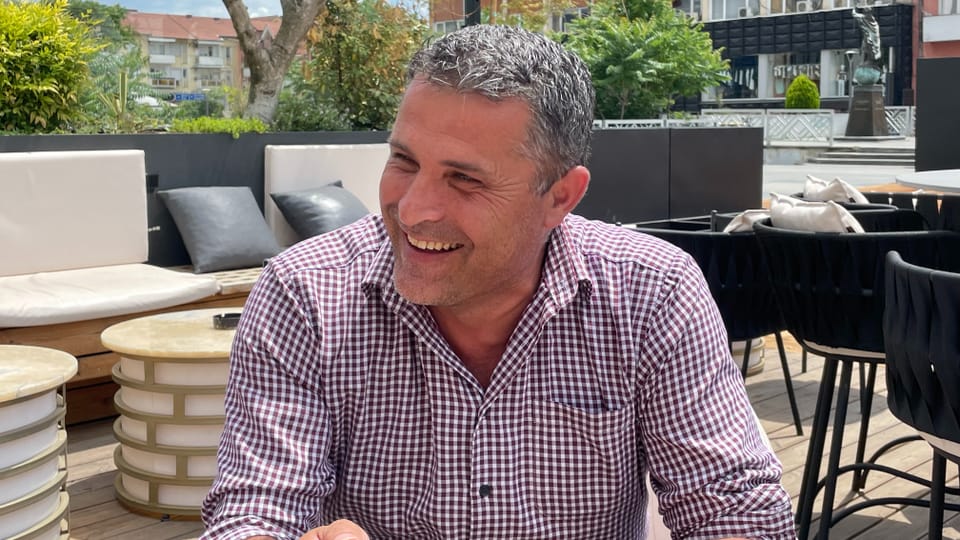
Purana:
Journalist Van Drago has many friends who also emigrated. At times he even toyed with the idea of applying for a Bulgarian passport.
SRF / Janis Fahrländer
However, there are not many applications for second passports at present. There are many reasons for this. Many who wanted to leave have already left. Bulgaria has also tightened the rules. In addition, due to labor shortages in Western Europe, it is now easier to obtain a Schengen visa with a North Macedonian passport. But Van Trajkov believes the dispute with Bulgaria also plays an important role.
“Bulgaria claims that North Macedonia is actually part of Bulgaria and that the Macedonian language is only a dialect of Bulgarian,” says Van Trajkov. This hurts the national pride of many Macedonians.
Fight over the same hero
At the heart of the debate is the national identity of North Macedonia. The reasons for this lie in the long shared past of the two present states: first in the Bulgarian Empire, then in the Ottoman Empire. Events and statistics from this period are now sought by both sides.
This is exemplified by the main square in Strumica. There is a huge statue of Gos Telse. A Macedonian national hero, as one passerby explains: “He died fighting for an independent Macedonia.” Hence he is honored in the national anthem.
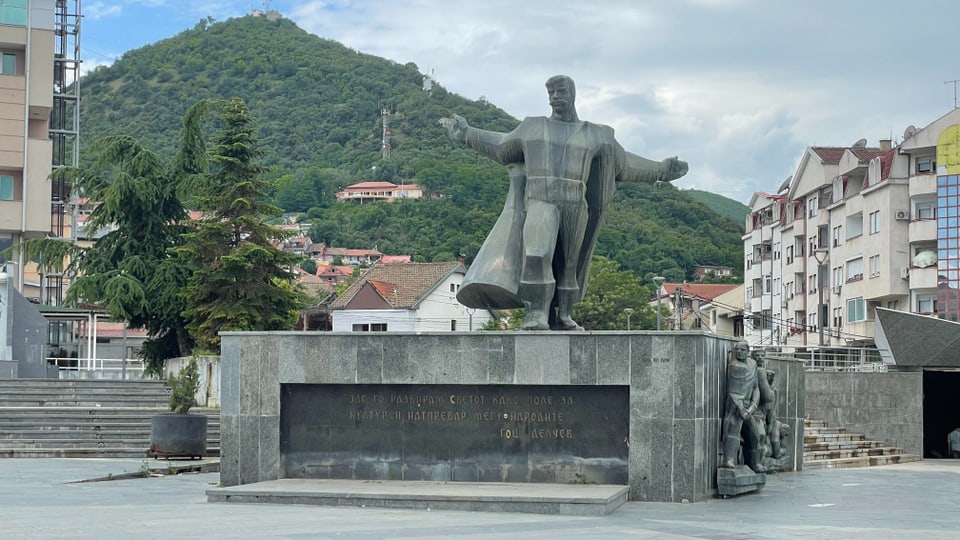
Purana:
The revolutionary Koz Telsev, his statue in Strumica, is celebrated by Bulgaria and North Macedonia.
SRF / Janis Fahrländer
Kos Telchev was a young revolutionary who fought against the Ottomans in the early 20th century. The only problem: Bulgaria also claims Kos Telsev as their own. There is a small town in the country named after him. A mountain is also named after him. The question now is whether Koz Telsev fought for an independent Macedonia or an independent Bulgaria, whether he was Bulgarian or Macedonian.
Fuel for EU negotiations
The neighboring countries have been at loggerheads for years. Bulgaria has therefore temporarily blocked the start of EU accession talks with North Macedonia and continues to threaten a veto if demands are not met.
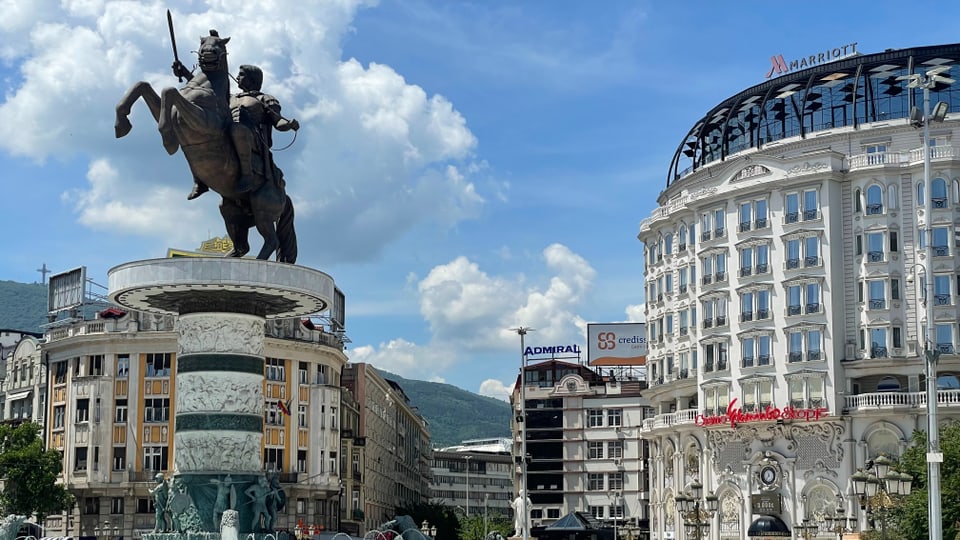
Purana:
A statue of Alexander the Great – which has stood for years in Macedonia’s capital Skopje – has sparked tensions with Greece. Both states claim the commander and king of ancient Macedonia as their own.
SRF / Janis Fahrländer
Many in North Macedonia no longer want to put up with this. After all, the country has already changed its name to resolve the blockade of Greece in a similar dispute. There was great hope at the time that negotiations with the EU would finally make progress. The Bulgarian veto shattered this hope. This is why there was a change of government in the election a few weeks ago. The new, right-wing government promises to take a tougher stance toward Bulgaria.
Commission should clarify historical questions
A few years ago, a rapprochement seemed possible. At that time, a commission consisting of historians from both countries was formed to clarify disputed historical questions. The Macedonian side is captained by Draghi Gjorgeev.
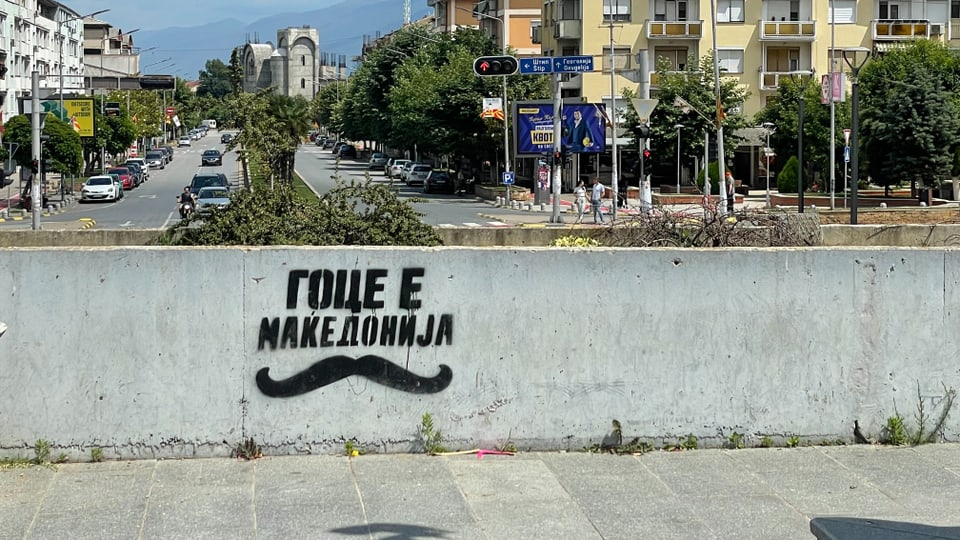
Purana:
On the stone wall in Strumica it says: “Gos Macedonian”.
SRF / Janis Fahrländer
The myth surrounding Kos Telce is more of an emotional than a rational issue, says the historian in his office in the capital Skopje. This makes it difficult to find sober answers. The whole matter became more emotional as politicians from both the countries intervened in the debate several times.
The Commission functions for six years. In the beginning they may have found compromises. But lately Bulgaria has been more and more blocked. Acting from a position of strength and using EU membership to exert pressure, the country can afford this. So Dragi Giorgiev does not expect that there will be solutions in the near future. The party leading the new government, particularly in North Macedonia, has repeatedly criticized the commission’s work before.
How will the winners position themselves?
The question now is how the election winners will react to the negotiations. During the election campaign they rejected compromise with Bulgaria. But they also know that the majority of voters want to join the EU. It should also be clear to them that Bulgaria has a big hand in this dispute.
Therefore, it cannot be ruled out that they will, despite everything, give in to the demands and include the Bulgarian minority in the constitution. However, they cannot enforce this without a guarantee that Bulgaria will waive further demands.

“Wannabe pop culture fanatic. Zombie advocate. Entrepreneur. Internet evangelist. Alcohol fanatic. Typical travel buff.”




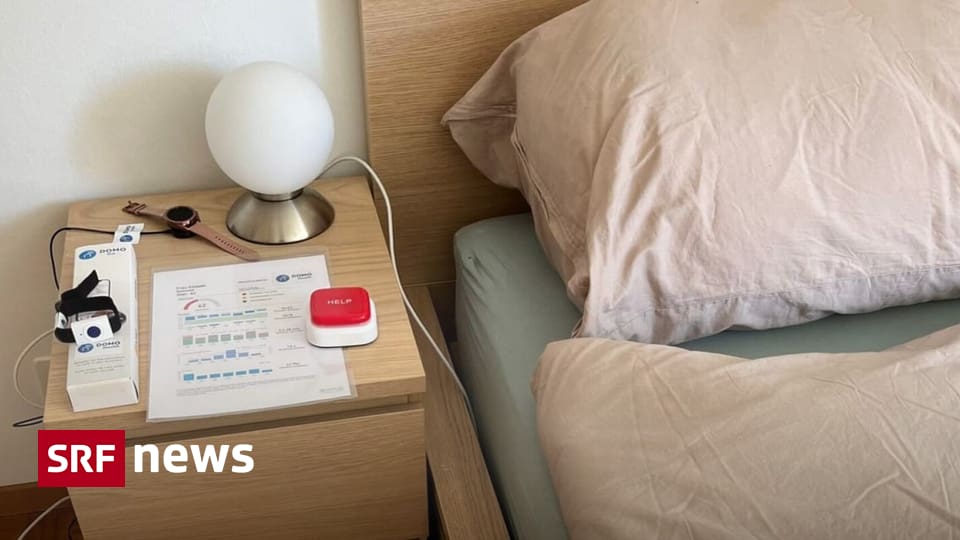

More Stories
Choosing the Right Quality Management Software for Your Industry
If guests bring items: Can shower gel be packed from the hotel?
Digital Technologies for the Elderly: Increasing Aging at Home – News